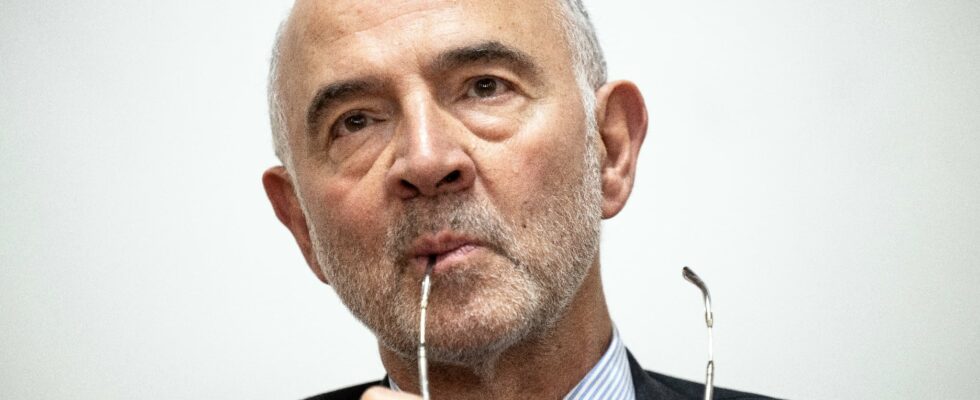“Twelve proposals that can be initiated from the 2025 finance law”: the Court of Auditors, which has been sounding the alarm on public finances for months, has decided to get involved by regularly publishing notes proposing avenues for improvement. precise and quantified savings. The first was presented this Thursday, January 9 by the First President of the Court, Pierre Moscovici. Its recommendations would make it possible to free up 2.7 billion euros this year, in lower spending and increased revenue, and even more in 2027.
Entitled “Exceptional aid measures: an exit from the crisis to be completed for the State budget”, it notes that numerous measures to support the economy taken during Covid and the inflationary crisis continue, “while the crises which justify them are generally resolved. “It is unthinkable to maintain recourse to ‘whatever it takes’ which only worsens the situation of public finances”, remarked the First President, observing that public expenditure has increased “by three points of GDP per year”. compared to before the crisis”, at 57%.
A series of proposals addressed to François Bayrou
The Court therefore lists a series of measures which, according to Pierre Moscovici, “do not touch any red line”. For example, reserve aid for hiring apprentices at levels 3 and 4 (secondary) and exclude companies with more than 250 employees: 745 million euros saved in 2025. Or even lower it to 1.925 ton the eligibility ceiling of vehicles for the ecological bonus (200 million euros), return to the kilometer tax scale in force in 2021 (530 million euros), return to the previous ceiling of the tax credit for childcare costs outside the home (200 million). The Court also suggests canceling the uncommitted appropriations of a fund and an initiative intended to support culture, for 194 million in total.
The note, which was originally an order from former Prime Minister Gabriel Attal, prefigures others, which this time will be of initiative: “so that, quite simply, the government and Parliament can seized within the framework of the discussion of the PLF and in anticipation of subsequent financial texts”, hoped Pierre Moscovici. The former minister, in socialist governments, and former European Commissioner in charge of Economic Affairs, often has harsh words towards governments, regularly guilty in his eyes of being too optimistic in their forecasts and not enough firm in reducing deficits.
He insisted on Thursday on the need to include in the 2025 budget a public deficit which remains below 5.5% of GDP, after 6.1% in 2024 – the one prepared under Michel Barnier predicted 5% – to stay on track of a return below 3% in 2029, as promised in Brussels. “In 2025, we will be the watchdog that recalls the facts, raises the issues, raises the challenges and proposes reforms,” he assured. These will be designed not to “handicap growth, weaken the quality of public service or weaken the social model”.
Reduce the deficit “urgently”
Pierre Moscovici established the publication of these notes as a “method”, announcing “a salvo of expenditure reviews of this type” in 2025, “short, very operational, not slices of text, to propose intelligent expenditure savings in all domains”. The Court, whose stated mission is to “ensure the proper use of public money, and to inform citizens”, publishes each year dozens of extremely precise and in-depth reports, but often quite forbidding.
The note published on Thursday, on the contrary, peppered with mentions in dapper green and synthetic boxes, seems much more manageable. The next one, between now and spring, will review health insurance spending. “The demand to reduce the deficit has turned into an emergency,” observed Pierre Moscovici. The Court of Auditors therefore wants to “contribute even more directly to the debate on public finances”. And “she has not finished putting them in order,” he warned.
